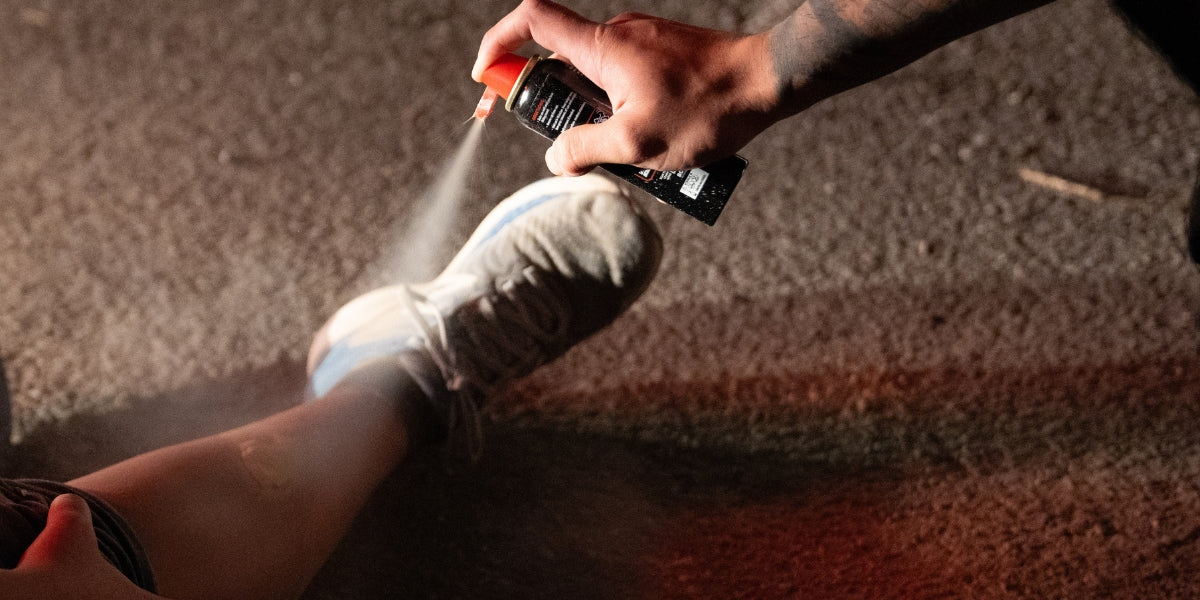
How to Treat Deep Cuts with First Aid Supplies
|
|
Time to read 3 min
|
|
Time to read 3 min
Whether it's a workplace injury, wilderness accident, or high-risk tactical scenario, knowing how to treat deep cuts can make the difference between life and death. Deep wounds are not only painful but can lead to severe bleeding, infection, and long-term complications if not managed quickly and correctly.
With the right first aid supplies on hand, you can stabilize the injury until professional help arrives. In this guide, we cover the full process of treating deep cuts and highlight the tools—like SEAL Hemostatic Spray —that belong in every trauma kit.
Table of contents
The first few moments after an injury are crucial. Take the following actions:
Ensure your own safety before providing aid.
Assess the severity of the cut: Is it spurting (arterial)? Is it deep or wide?
Call 911 immediately if the wound is large, bleeding uncontrollably, or located near vital areas (neck, abdomen, joints).
Glove up with nitrile gloves if available to avoid contamination.
Apply direct pressure using sterile gauze or a clean cloth.
Elevate the injured area above heart level if possible.
For serious bleeding, apply SEAL Hemostatic Spray directly into the wound for rapid clotting without pressure.
Product Highlight: SEAL Hemostatic Spray is a non-exothermic, spray-based bleeding control agent ideal for field use.
Rinse gently with sterile saline or clean water.
Avoid alcohol or hydrogen peroxide—they can damage tissue and slow healing.
Pat dry around the wound with sterile gauze.
If bleeding persists or is severe, apply a hemostatic agent like SEAL Spray again.
Hemostatic sprays are especially useful in solo-responder or hard-to-bandage scenarios.
Use a sterile trauma dressing or non-stick pad.
Wrap securely with cohesive bandage or medical tape.
Watch for signs of infection (redness, swelling, warmth, pus).
If the wound is deep or the edges don’t close, stitches may be required.
Always consult a healthcare provider for follow-up.
| Item | Purpose |
|---|---|
| Sterile Gauze Pads | Apply pressure and absorb blood |
| SEAL Hemostatic Spray | Stops bleeding without pressure |
| Antiseptic Wipes or Saline | Clean the wound site |
| Trauma Dressing / Wrap | Cover and secure the wound |
| Nitrile Gloves | Maintain hygiene while treating |
Not all deep cuts can or should be handled at home. Seek immediate professional help if:
The cut is more than half an inch deep
Bleeding doesn’t stop after 10 minutes of pressure
You see fat, muscle, or bone in the wound
There’s a risk of infection (rusty metal, animal bites, dirty tools)
You have not had a tetanus shot in the past 5 years
No pressure required: Works on its own, perfect for awkward areas or solo responders.
Fast and effective: Rapid clot formation minimizes blood loss.
Safe and compact: No chemical burn risk; easy to carry in any kit.
Field-tested: Used by first responders and tactical units across the U.S.
Yes, if bleeding is controlled and the wound is clean. Seek medical attention for deeper or contaminated wounds.
Avoid alcohol, hydrogen peroxide, or cotton balls that leave fibers behind.
If the wound edges don’t close or it’s more than half an inch deep, yes.
It delivers a fast-acting hemostatic agent that accelerates clotting on contact, without heat or pressure.
When seconds count, being prepared to treat a deep cut can prevent serious complications. Stock your trauma kit with essential supplies and proven solutions like SEAL Hemostatic Spray to ensure you’re ready for anything.
Be prepared. Stay safe. Shop SEAL Hemostatic Spray now
